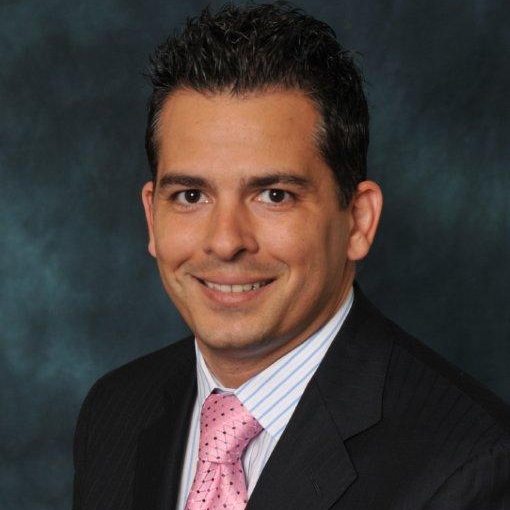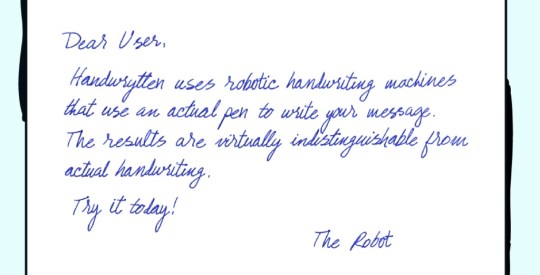With the establishment of the SAFE Act and the Nationwide Mortgage Licensing System (NMLS), changes to the licensing requirements for loan originators have drastically altered the hiring landscape. Now, LOs who work for state-regulated companies must be licensed and registered, a process that requires a background check, a credit check, 20 hours of pre-license education and an exam on national and state-specific material. Those who operate under federally regulated banks face far less scrutiny; they need only to undergo a background check and register with the NMLS.
In other words, bank LOs are exempt from the rigorous state licensing process and have the ability to originate loans in all 50 states, while LOs working for nonbank entities have to be licensed in every state in which they wish to originate. These LOs are also forced to undergo the process again for license renewal.
This stipulation has made it difficult for some companies to remain competitive with federally chartered banks, who some say have an advantage under the exemption law.
It has also led to hiring challenges as companies consider paying a premium for LOs who hold, in some cases, several state licenses, or invest in training and educating an LO in the hopes that he or she will successfully obtain a license.
Also complicating the issue is the mandatory credit check. Some see this requirement as unfairly discriminating against a potentially skilled LO who, like many, may have suffered financial hardship in this tough economic climate. Companies now need to focus on a candidate’s credit history in addition to his product knowledge and ability to complete a sale.
Reverse companies have had to adapt their hiring strategies to accommodate these stringent requirements. TRR spoke to three industry leaders and asked them to sound off on the hiring challenge.
 PAUL FIORE
PAUL FIORE
Director of retail lending
American Advisors Group
Q:: HOW HAS THE LICENSING SITUATION AFFECTED YOUR HIRING PROCESS AND HOW HAVE YOU ADAPTED?
A:: We really take a long and hard look at an individual’s credit history and we do a full background check. When you’re hiring someone to work in your sales division, it is extremely important that you hire people who not only have strong sales acumen, but also exhibit a credit history that indicates their ability to get licensed.
Q:: DO YOU PREFER TO HIRE ONLY LICENSED LOs? IF SO, DO YOU PAY A PREMIUM FOR THEM?
I actually try to take a different approach. We are big fans of bringing in people without experience in the mortgage industry and training them to pass the tests and sell the product. Additionally, having a license means you are trained to sell forward mortgages, and forward experience doesn’t necessarily lead to success on the reverse side; it is a completely different demographic, a different sales process and requires a different set of skills.
Q:: HOW DO YOU APPROACH HIRING AN LO WHO IS UNLICENSED? WHAT DO YOU DO TO JUDGE THEIR POTENTIAL TO OBTAIN AND MAINTAIN A LICENSE?
A:: When we recruit LOs, we look at the whole picture. I have a set of standard interview questions that I always ask and a lot of it focuses on culture. Before I even entertain the idea of hiring someone, we need to make sure that working here is a good fit for both the employee and the employer. We really dive deep into someone’s past experiences and try to learn if they will be successful working at our firm. We also look at the candidate’s credit history to see if there may be some things on there that will prevent the LO from getting licensed. If there are some “life events” such as foreclosures, bankruptcy or collections, we need to establish whether this potential LO is going to take a proactive approach to clear up the issue and take the necessary steps to get licensed. It is a very detailed process and leads to some difficult hiring decisions.
Q:: WHAT ARE SOME THINGS AN LO LOOKING FOR EMPLOYMENT CAN DO TO INDICATE THAT HE OR SHE IS A VIABLE CANDIDATE CAPABLE OF COMPLETING THE LICENSING PROCESS?
A:: No matter what happened in the candidate’s past, he or she needs to be upfront and honest with both the employer and the state regulators. The worst thing potential LOs can do is not be truthful on their licensing applications. Any misinformation will lead to an automatic denial in most instances and states will inform each other when they feel an LO is trying to be deceptive.
Q:: DO YOU CONSIDER CLEAN CREDIT TO BE A RELEVANT REQUIREMENT FOR LOs?
A:: Not necessarily. Unfortunately, we have gone through the worst financial crises of our time—life happens. Many people lost their jobs or saw their homes go underwater and had to short-sell or maybe even be subject to a foreclosure action. It is important to consider things such as credit when reviewing a potential candidate, but it is just as important to make sure you are hiring the right fit for your company overall. If someone is a good person, demonstrates great sales acumen and appears to have the potential to be an asset to the company, we will really try and work with the licensing team to see if we can get over the hurdles that may exist to get them licensed.
Q:: DO YOU THINK THAT LOs OFTEN HAVE TROUBLE COMPLETING THE LICENSING PROCESS?
A:: Completing the licensing process can be time-consuming and difficult, depending upon a few factors. No two states are alike in that they look at each applicant differently, and what may be sufficient for one may require more documentation for another. My recommendation to any LO who is working on obtaining a license is to make sure you are proactive with the states: Give them everything they need and be prepared to have additional documentation just in case they ask for it.
Q:: DO YOU THINK THAT THE LICENSING REQUIREMENT GIVES FEDERALLY CHARTERED BANKS AN UNFAIR ADVANTAGE OVER STATE-REGULATED COMPANIES?
A:: Ideally, we would all be treated equally. I’m not sure how it can be considered a fair playing field if a federally chartered bank doesn’t have to license LOs like everyone else does. I do know this: If a borrower is working with an LO from our company, they have access to an LO’s background and they can be assured that the LO has passed the state’s licensing tests and is authorized to do business there. I think that should be the same for all lending institutions. Hopefully, we will get there one day.
Q:: HOW DO YOU THINK THE LICENSING REQUIREMENTS COULD BE IMPROVED TO BEST SERVE BOTH THE CONSUMER AND THE LO?
A:: Some of the things that states take issue with when trying to license an LO have nothing to do with whether or not the LO is competent to originate. I think we all need to be aware of the financial challenges many people have faced in this country. I know as a consumer, my biggest concern when doing business with someone is whether they are trustworthy and have a good reputation. I’m not so concerned with whether they had a problem with paying some bills because they were out of work due to long-term unemployment. I wish we would focus more on the moral compass and the aptitude of the individual.
 DAN SHACKELFORD
DAN SHACKELFORD
Senior vice president
Security One Lending
Q:: HOW HAS THE LICENSING SITUATION AFFECTED YOUR HIRING PROCESS AND HOW HAVE YOU ADAPTED?
A:: Undoubtedly, the licensing requirements have added delays to our hiring process. To reduce these delays, we’ve assembled a dedicated team to work with new LOs to immediately identify what needs to be done to get them licensed. We’ve definitely had to invest in additional resources to handle this, but we’ve dealt with this since 2008, so we’ve become very proficient at managing the overall process. The investments we’ve had to make are a necessity to ensure compliance and efficiency.
Q:: DO YOU PREFER TO HIRE ONLY LICENSED LOs? IF SO, DO YOU PAY A PREMIUM FOR THEM?
A:: Our model is to hire the best reverse mortgage sales professionals in the industry. Most of these top loan officers are already fully licensed, or they’ve already completed the majority of the requirements. For those not yet licensed, we work with them to complete the necessary coursework in a timely manner. To help prepare them for the exams, we have partnered with an industry leader in online training, which has resulted in exceptional passing rates.
Q:: HOW DO YOU APPROACH HIRING AN LO WHO IS UNLICENSED? WHAT DO YOU DO TO JUDGE THEIR POTENTIAL TO OBTAIN AND MAINTAIN A LICENSE?
A:: It’s important to set expectations with all hiring candidates and explain the requirements necessary to obtain federal and state licensing. This is not limited to just coursework and testing, but also involves a background check, credit history, fingerprinting and other requirements, depending on the state. During our initial conversation with the applicant, it is imperative to assess the LO’s willingness to commit to the process and ensure that they meet the personal history and credit requirements.
Q:: WHAT ARE SOME THINGS AN LO LOOKING FOR EMPLOYMENT CAN DO TO INDICATE THAT HE OR SHE IS A VIABLE CANDIDATE CAPABLE OF COMPLETING THE LICENSING PROCESS?
A:: First of all, if a loan officer is committed to this business, they need to be proactive. Even if they are currently employed at a federally chartered bank, LOs should get their federal and state licensing completed. Not doing so will only limit their career options moving forward. Before even inquiring with a lender about employment, they should be prepared by visiting the NMLS website, which contains a wealth of helpful information, including a checklist of requirements specific to their home state. In some cases, they may even want to pull a free credit report to clear any errors with the credit agencies.
Q:: DO YOU CONSIDER CLEAN CREDIT TO BE A RELEVANT REQUIREMENT FOR LOs?
A:: The evaluation of credit is unique to each individual LO and the state in which they are pursuing a license. Many LOs have encountered hard times in today’s real estate market and their credit report has suffered as a result. This does not necessarily make them a bad LO. As with loan underwriting, you need to know the full story before making a blanket assumption.
Q:: DO YOU THINK THAT LOs OFTEN HAVE TROUBLE COMPLETING THE LICENSING PROCESS?
A:: As long as an LO completely reads the requirements and follows the instructions step by step, they should not experience any difficulty. Also, it’s important for LOs to follow up with their state once their license application has been submitted. (Tip: You can usually find the name of the person who is working on your application within NMLS’s online system.)
Q:: DO YOU THINK THAT THE LICENSING REQUIREMENT GIVES FEDERALLY CHARTERED BANKS AN UNFAIR ADVANTAGE OVER STATE-REGULATED COMPANIES?
A:: It certainly seems that the process to approve an LO is contradictory between federally chartered banks and state-regulated institutions. If the purpose of the SAFE Act was to increase uniformity among loan originators, then each LO should be subject to the same requirements. As the results of the SAFE Act and implementation of NMLS are evaluated, I believe that the licensing requirements will reach a more common ground over time.
Q:: HOW DO YOU THINK THE LICENSING REQUIREMENTS COULD BE IMPROVED TO BEST SERVE BOTH THE CONSUMER AND THE LO?
A:: The process should continue to be reviewed and validated by those who
have set the mandates to ensure that the regulations are doing what they were intended to do. Is there increased protection? Is there a decrease in fraud? The process should continue to evolve so we can protect consumers, but not prevent reputable LOs from being able to do their jobs.
 JOSHUA SHEIN
JOSHUA SHEIN
Vice president
Maverick Funding
Q:: HOW HAS THE LICENSING SITUATION AFFECTED YOUR HIRING PROCESS AND HOW HAVE YOU ADAPTED?
A:: As the new laws came into place for licensing, hiring became a challenge. You didn’t have to pay nearly as much attention to it in the old days. Now the licensing requirements are a humongous part of recruitment, require a lot of attention and affect a company’s overall business plan. I do think it’s a good thing though. It calls for proper vetting. You have to pay attention to which states an LO has to get approved in, how many states you want them approved in, and the cost associated with that. You have to look at how much you’re investing in each loan officer, how much it’s worth, at what point and for what person. In the old days, we asked: Can they sell? Can they adapt to our process? Now we have to consider their credit, their background issues and their overall ability to pass a test on top of everything else. That has been a game-changer for us all.
Q:: DO YOU PREFER TO HIRE ONLY LICENSED LOs? IF SO, DO YOU PAY A PREMIUM FOR THEM?
A:: I definitely do look first at high-licensed LOs—it certainly takes one major element out of the hiring process. You don’t have to wonder, “Will they pass the test?” In the hiring process, we can get a good idea about an LO’s background, but when you factor in the need to pass a test, the need to train and attend classes, it becomes more difficult to predict. As for paying a premium, we definitely explore and discuss our options, but we don’t set a specific premium. There are too many other factors involved. Experience, for one, is essential. You might have someone with 10 licenses who has never closed a loan. On the flip side, here in Maryland, you might have someone licensed in this state but not anywhere else. Still, if the LO is good and you see potential, we would trust that he or she is capable of obtaining a license in other states. We definitely hire unlicensed LOs and put in the time to help train them. It’s a more involved approach than in the old days, but it can work.
Q:: DO YOU CONSIDER CLEAN CREDIT TO BE A RELEVANT REQUIREMENT FOR LOs?
A:: We do look and see if there is any bankruptcy, judgments or liens that prevent the individual from getting a license. You have to have clean credit. Does it preclude the LO from getting a license? Absolutely not. That depends on the degree of the infraction and the reasons and explanations behind it. There has to be a sensible, credible cause for why it happened. When we run into people who have this issue, we definitely talk it out with the candidate and see if there’s a way to explain it. In some cases we’ll say, “We’ve dealt with this before. This state might allow it, this state won’t.”
Q:: DO YOU THINK THAT YOUR LOs OFTEN HAVE TROUBLE COMPLETING THE LICENSING PROCESS?
A:: The exam is challenging; it’s really tough. It also doesn’t really cover reverse at all, so the LO has to be trained and educated in forward loans just to obtain a license, and that’s a real challenge for us. We have people come in to learn reverse, they think they’re ready to be licensed, and then they have to go back and learn the forward process.
Q:: DO YOU THINK THAT THE LICENSING REQUIREMENT GIVES FEDERALLY CHARTERED BANKS AN UNFAIR ADVANTAGE OVER STATE-REGULATED COMPANIES?
A:: No question about it, they absolutely have an advantage. I’ve lost good people to federal banks because it’s an easier road. However, achieving bank requirements is not without its pitfalls. I know most of the federally chartered banks are doing it the right way; they have their own vetting process that can be challenging. I’ve seen people get turned down when they could have been licensed to work at a nonbank. But still, at a bank you can avoid the test. And in that sense, it is not a level playing field. I think it’s something that should be balanced out.
Q:: HOW DO YOU THINK THE LICENSING REQUIREMENTS COULD BE IMPROVED TO BEST SERVE BOTH THE CONSUMER AND THE LO?
A:: The test is too difficult. I’ve heard that the failure rate is really high, and I think that’s a good sign that it’s too complicated. I think there should be a test and that background checks are a good thing, but it doesn’t need to be as intense. States could also work better together to coordinate approval levels and expectations. I think the varying requirements are incredibly complicated and also time-consuming and expensive to navigate. It slows down the hiring process, which hurts consumers, who ultimately need good people working for them. While the licensing requirements do help prevent non-serious, short-term people from jumping in and out of the business, some tweaks to the system would make a big difference.



